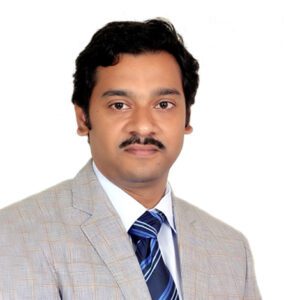Cancer is the second leading cause of death in the world after cardiovascular diseases. The word cancer came from the Greek words “Karkinos” to describe carcinoma tumors by Hippocrates (460-370 B.C). The world’s oldest case of breast cancer hails from ancient Egypt in 1500 BC.
The International Agency for Research on Cancer (IARC) estimates that one-in-five men and one-in-six women worldwide will develop cancer over the course of their lifetime, and those one-in-eight men and one-in-eleven women will die from their disease. Worldwide, the total number of people who are alive within 5 years of a cancer diagnosis, called the 5-year prevalence, is estimated to be 43.8 million. The increasing cancer burden is due to several factors, including population growth and ageing as well as the changing prevalence of certain causes of cancer linked to social and economic development.
Cancers of the lung, female breast, and colorectum are the top three cancer types in terms of incidence. Lung cancer is the most commonly diagnosed cancer in men (14.5% of the total cases in men and 8.4% in women) and the leading cause of cancer death in men (22.0%, i.e. about one in 5 of all cancer deaths). Breast cancer is the most commonly diagnosed cancer in women (24.2%, i.e. about one in 4 of all new cancer cases diagnosed in women worldwide are breast cancer).
Global patterns show that for men and women combined, nearly half of the new cases and more than half of the cancer deaths worldwide in 2018 are estimated to occur in Asia, in part because the region has nearly 60% of the global population.
As per the Indian Council of Medical Research (ICMR), the incidence of cancer cases in India was 14 lakhs in 2016. Cancer of breast, cervix, oral cavity and lung constitutes 41% of the cases. Oral cavity cancer is the most common in men and third in women. “The age standardized rate is approximately 25.8 per one lakh women and is expected to rise to 35 per one lakh women in 2026,” the report stated.
A few months back my aunt was diagnosed with cancer. As soon it was diagnosed, I got a call from my uncle saying, “your aunt’s days are numbered now, please see what can be done.” Though they didn’t know the details of the diagnosis, I was surprised to hear such a depressing response to the diagnosis.
This is not the only reaction I get, but most of the families where someone is detected with cancer, this is a common response. Cancer has become synonymous with the end of life. Though the survival rate has increased due to early diagnosis and advances in treatment modalities, the cause of this fear is a lack of proper information and a lack of appropriate medical intervention at the right time.
Treatment of cancer involves a multidisciplinary holistic approach. The team of doctors for diagnosis, treatment, and care of cancer patients includes Surgical Oncologist, Medical Oncologist, Hematoncologist, Radiation Oncologist, Pathologist, Radiologist, Nuclear medicine specialist, Pain and Palliative care specialist, Dentist, etc., and also Medical physicist, Radiotherapy technologist/dosimetrist, Physiotherapist, Dietician and Oncology nurses. Each team member is important in this chain of cancer care to successfully treat a patient. The cancer care team at Mahatma Gandhi Cancer Hospital and Research Institute, Visakhapatnam, Andhrapradesh, with its gamut of services is fully equipped to manage a cancer patient holistically.
Cancer has always been known as a dreaded disease, and this unknown fear can be removed with timely intervention by the health care team specialized to manage such cases.

Written by
Dr. Partha Sarathi Bhattacharyya,
MD, Radiation Oncologist
Mahatma Gandhi Cancer Hospital and Research Institute, Visakhapatnam









